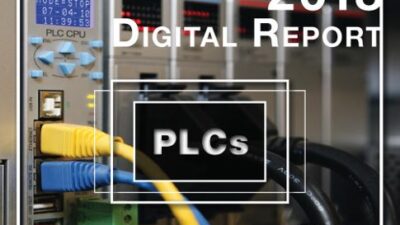When the wind stops blowing, the stored hydrogen can be tapped, mixed with biogas produced at the site from local corn, and fed into two traditional power stations of 350kW capacity at the facility.
According to a report in The Irish Times , German chancellor Angela Merkel has
German Chancellor Angela Merkel and other officials at announcement of new hybrid power plant. Source: EHA.
unveiled plans for a EUR 21 million hybrid plant that is scheduled join the grid next year in the Uckermark region of Brandenburg near Berlin.The station’s three windmills generate energy for the region but, with a total capacity of six megawatts, are likely to produce more electricity than is needed at any one time.The excess electricity will be fed into a 500 kilowatt (kW) electrolizer to produce hydrogen that is stored onsite. When the wind stops blowing, the stored hydrogen can be tapped, mixed with biogas produced at the site from local corn, and fed into the facility’s two traditional power stations of 350kW capacity.The electricity and heat produced in a process called co-generation can be piped to households and businesses in the region. Excess hydrogen can be sold to local hydrogen providers for hydrogen-driven cars and buses. Enertrag , the company building the plant, hopes the technology will solve the traditional problem of wind power: that it produces too much or too little energy. The plant will incorporate an energy monitor to fine-tune the production of energy to required levels and minimize waste.The hybrid plant’s clean hydrogen fuel has caught the attention of French petrochemicals giant Total . It has come on board as a partner in the project, hoping to a get headstart on competitors.Some renewable energy experts have expressed doubts that the electrolysis will be as effective as planned and warn that the technology is a long way from being market-ready. The storage of the hydrogen and returning it to the form of electricity, even with the latest technology, results in huge losses of energy.“The technology is very elaborate and very expensive,” says Dr. Peter Schäfer of the Jülich research centre, which operated a similar hydrogen storage system powered by solar cells. “In our project, we had to contend with very high running costs. And then there is the problem of huge energy losses in the energy tanks storing the hydrogen. Still, to continue to work on the technology in the new hybrid energy station is commendable.”
– Edited by David Greenfield , editorial director
Control Engineering News Desk
Register here .


